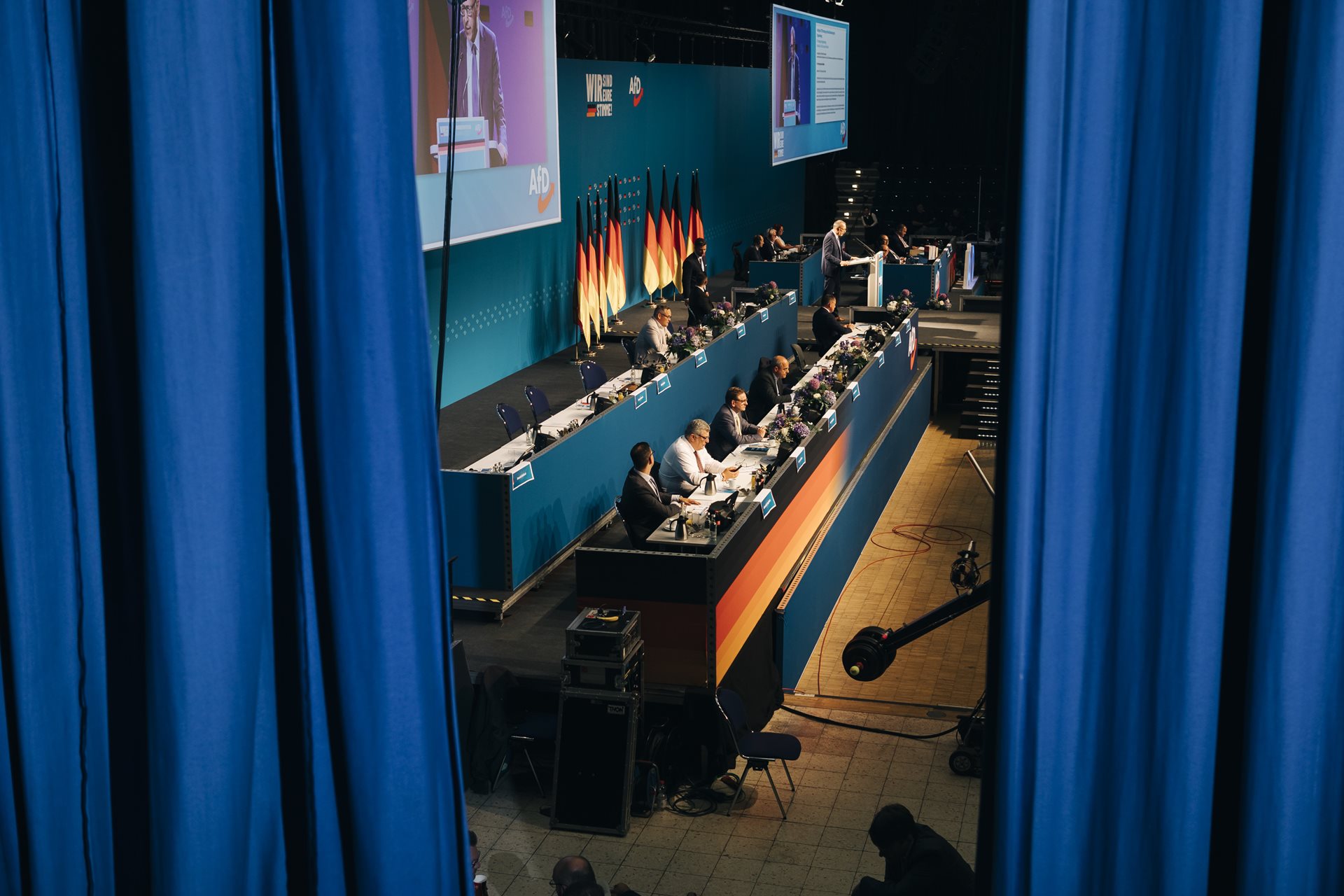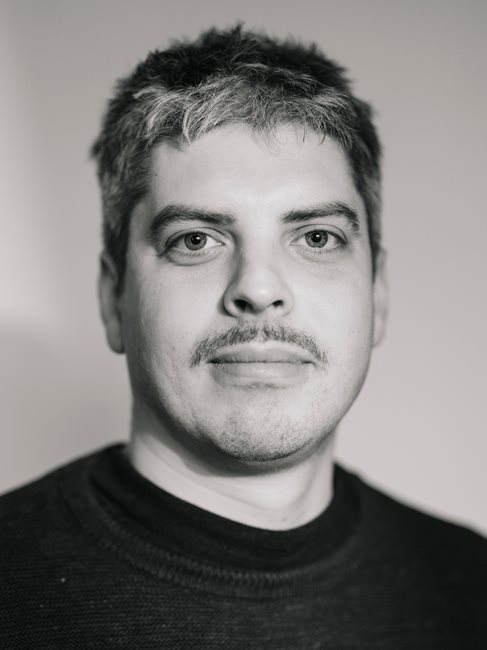Alternative für Deutschland (AfD) holds a federal party conference in the Grugahalle, Essen, Germany. Outside the hall, some 100,000 protesters demonstrated. Many Germans see the party’s far-right views as a threat to democracy.
Germany’s nationalist, anti-immigrant political party, Alternative für Deutschland (AfD), made major gains in 2024, doubling its support to achieve 20.8% of the vote in the 2025 national elections. This comes at a time when populist parties are gaining ground across Europe, in countries such as France, Austria, the Netherlands, Hungary, Poland, Spain, and Italy.
In 2024, the photographer attended AfD rallies to examine and question the way the party presents itself. Far-right and populist political groups, professing a mistrust of mainstream media, are proving adept at using new media to spread their ideologies. Opponents accuse them of amplifying misinformation and fake news, spreading division and hatred, and endangering democracy.
The AfD has moved further to the right over the years, accused of racism, Islamophobia, and extremism. The Thuringia leader of the party, Björn Höcke, has twice been fined for using a Nazi-era slogan, and Der Spiegel points out that the party is increasingly open about its rejection of democratic principles.
The party styles itself as the “party of the little people”, as anti-establishment, and supporting the marginalized. But it is also gaining a broader base by tapping into disillusionment with politicians, a distrust of mainstream media, and antagonism to immigrants. Many young men, in particular, are turning to the right. Pew Research Center in 2024 found that 26% of German men had positive views of the AfD compared to 11% of women. On a wider scale, a 2024 European Election Study revealed that 60% of young men under 30 in EU countries would consider voting for the far right – much higher than the share among women. However, the rise of the AfD has also seen widespread protests in opposition of the party. More than four million people joined demonstrations against the far right in Germany in 2024.
Are you a photographer and/or passionate about press freedom? Sign up for our newsletter to stay updated on our annual contest and to hear about exhibitions near you.

